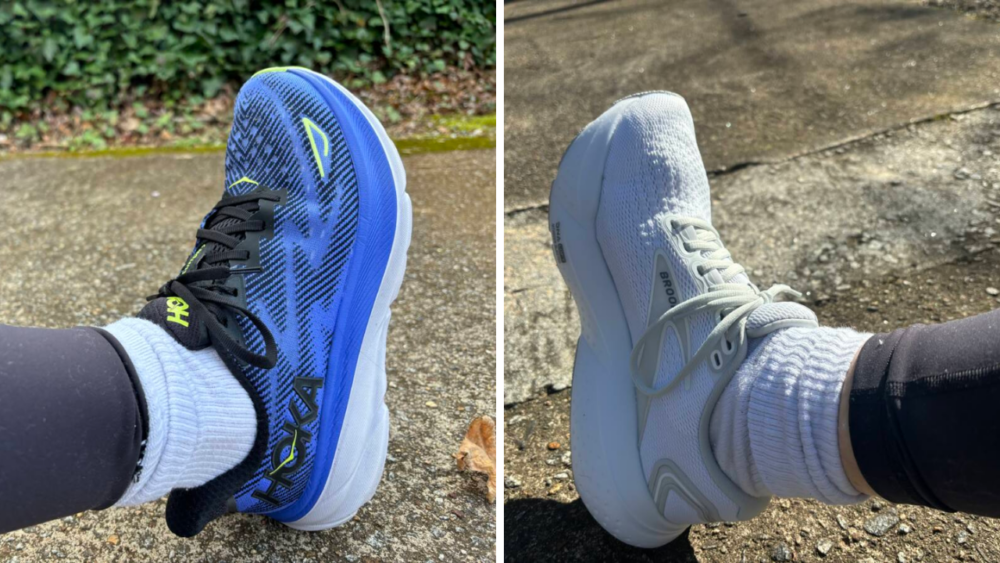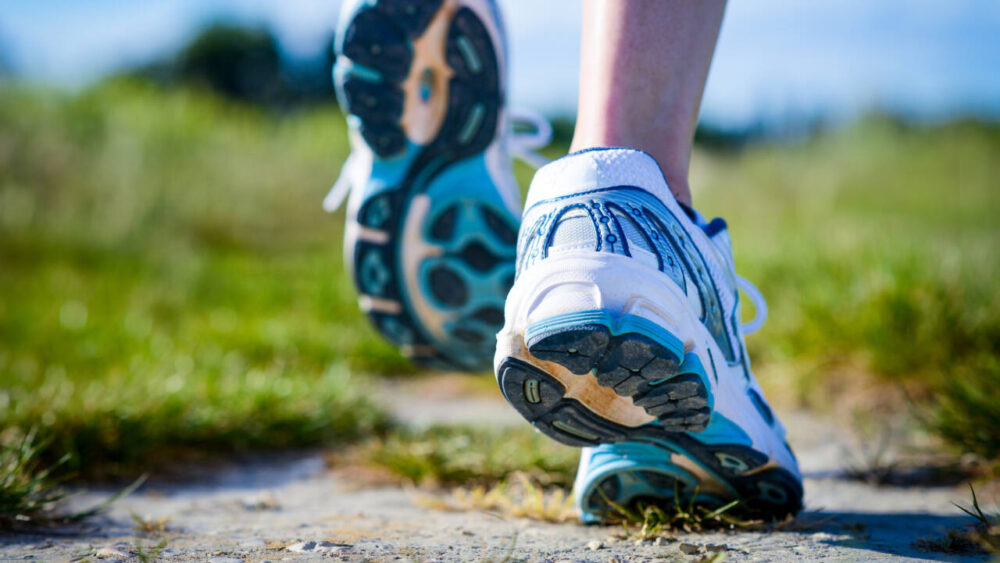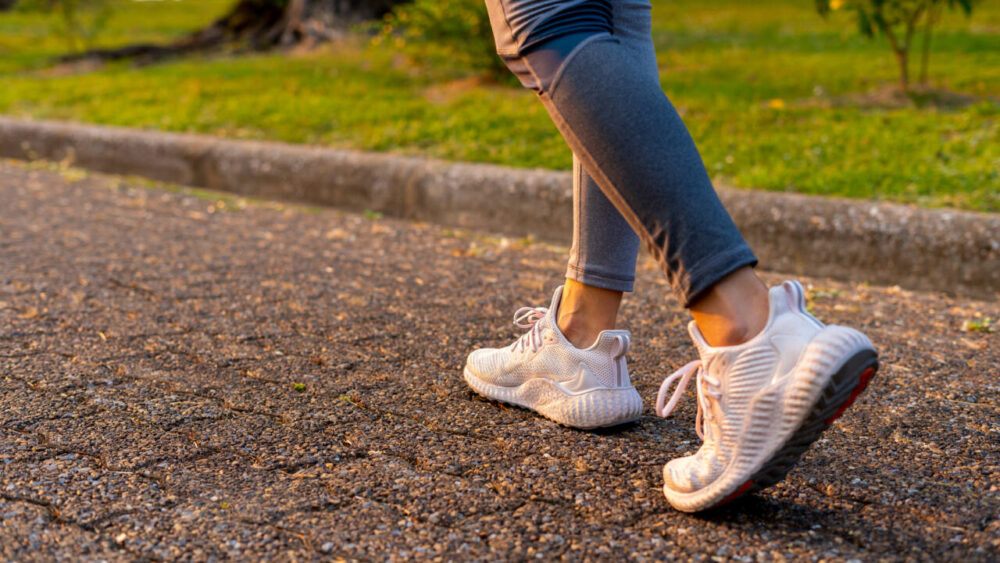8 health benefits of walking just 20 minutes a day

- January 3, 2016 |Last updated on 04/01/2024
Although prolonged aerobic workouts can offer many benefits, any form of physical activity can improve your overall health, even if it’s just walking for 20 minutes a day. Moderate exercise, like walking at a brisk pace in your best walking shoes, is an accessible and low-commitment way to get in a workout and reap the many rewards for your mind and body.
Whether you wake up a bit earlier for a sunrise stroll, fit in a lunchtime walk during work or go for a post-dinner constitutional, you’ll notice improvements to your health and well-being in a variety of ways. Find out how walking just 20 minutes a day can benefit you — from your brain to your feet and everywhere in between.
MORE: How to pick the most comfortable walking shoes for women
1. Improved Mood
Need a mood boost? Get walking! Taking a brisk walk for even 10 minutes could put you in a sunnier state of mind. Exercise releases neurochemicals that make us feel better, such as endorphins, serotonin and dopamine. Walking can also lower cortisol levels, which is the hormone that makes us feel stressed out.
2. Lowered Risk of Heart Disease
Taking regular walks has been shown to lower blood pressure, which in turn lowers the risk of heart attack and stroke. Research published in The New England Journal of Medicine studied the effects of walking on postmenopausal women and found that participants who walked at least 2.5 hours per week had a 30% lower risk of cardiovascular disease in comparison to participants who did not walk regularly.
MORE: Why walking around barefoot, even at home, can be bad for you
3. Increased Energy
If you feel like you hit an afternoon slump everyday, you may want to get moving. Physical exertion — including moderate exercise like walking — will give you an energy recharge, starting at the cellular level. Exercise prompts your body to produce more mitochondria in your muscle cells, and mitochondria are responsible for creating fuel from the food and oxygen you take in. Basically, more mitochondria in your cells means more energy for you. Exercise also kicks up the flow of oxygen, which helps your body use energy more efficiently.
4. Stronger Memory and Improved Brain Health
A 2021 study published in NeuroImage found that aerobic walking in older adults was more effective than dancing or stretching in improving the brain’s white matter, the section responsible for memory and learning. Essentially, physical activity (including walking) boosts our ability to remember and learn — even well into adulthood. In contrast, for folks who lead a sedentary lifestyle, their white matter tends to shrink and fray.
Even for middle-aged and older adults who are already experiencing cognitive impairments or memory decline, the blood flow to the brain that results from a daily brisk walk has been shown to improve brain function. So, keep walking — your brain will remember to thank you!
5. Constipation Relief
As with any exercise that gets your heart rate up and your blood pumping, walking can help if your digestive system is a bit stuck. A regular walking routine can stimulate the digestive system and ease the symptoms of constipation. Remember: If you want to get things moving, get yourself moving!
6. Longer Life
Walk yourself into a longer lifespan! Walking has been linked to increased longevity, likely because it lowers the risk of other conditions and illnesses that lead to death. According to one study, people who committed to exercising for 150 minutes a week in at least 10-minute intervals lowered their risk of death by 31%. Since a large number of early deaths are due to a sedentary lifestyle, any increased activity can have profound effects on your lifespan.
7. Lowered Risk of Diabetes
Even taking an incredibly short walk — we’re talking just 2 minutes long — after eating a meal can lower your blood pressure and reduce your overall risk of Type 2 diabetes. Of course, the health benefits only increase with longer and more frequent walks.
8. Improved Immune System
People who exercise regularly are setting up their immune systems for success when it comes time to fight off illnesses. Studies have found that exercise (including just a brisk, 30-minute walk) improves immune system function by increasing the number of infection-fighting cells (such as white blood cells) that are circulating in the bloodstream. There is one caveat, however — the benefits to the immune system right after completing the physical activity are relatively short-lived, which is why it’s important to keep up a regular and consistent exercise routine and build up the immune system over time.













